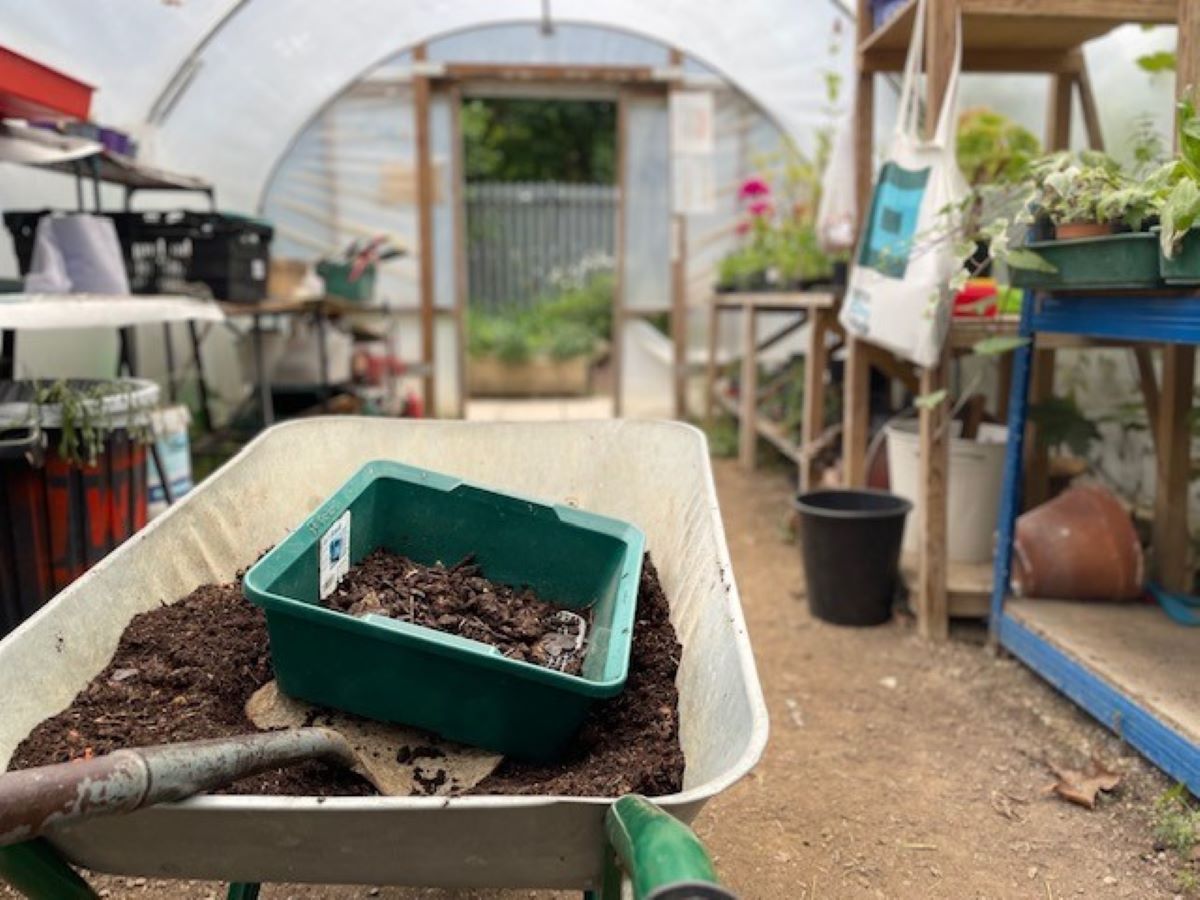Sustain • London Food Link • Articles
Growers Corner: November to December
With the days growing shorter and nights colder we check in with head grower at our showcase allotment gardens, Chris Murphy, to see what jobs need doing as well as autumnal tips for the garden.

KEEP IT COVERED
The worst thing to do over the winter is to leave soil bare; harsh winds risk eroding the top layer and constant rain can wash away valuable nutrients. Here are some things you can do to keep your soil healthy over the winter months:
Plant green manures
Green manures are fast growing plants used to cover and protect bare soil. They can be used to improve soil structure, store nutrients and suppress weed growth. Green manures help to build healthy soil and are essential to organic food growing. With the mild autumn we’re currently experiencing, we’re trialing a late sowing of crimson clover and phacelia in Kensington Gardens and a mix of winter tares and field beans in Regents Park.
Add a mulch
If you don’t have green manure seeds, or you’ve left it too late to get plants established before the first frost, the second best thing you can do is add an organic mulch to your beds. You can use anything from homemade compost, well rotted manure, wood chip (the bulk of which can be scraped back and removed in the spring), straw, leaf mould or even just a thick layer of dried leaves. Mulching your beds will help to add nutrients and can work towards improving soil structure.
Cover with cardboard
Flattened cardboard boxes can be a great way to cover exposed soil over the winter, they’ll prohibit weed growth and help keep the soil warm during frosts. Just be sure to remove any sellotape first. As a last resort, particularly if tackling tough perennial weeds, you can use plastic sheeting. Make sure it’s durable to not break down in your soil and so it can be used and re-used as required.
START PLANNING
As we head towards winter, this is the perfect time to reflect on the previous season and start thinking ahead about what’s to come. What grew well or not so well? Did you have a glut of something and wish you’d grown more of something else? Think about these things, make notes, write plans.
Start pouring through seed catalogues and researching local organic plant nurseries. Use this time to get excited and inspired. Take stock of the seeds you have and make sure to sort and properly label any that you’ve saved, find a local seed swap or consider donating any excess to a local community garden.
Think outside the box with regards to what you plan to grow the coming spring - does the warming climate mean it’s time to try growing ginger and turmeric outside? What about sweet potatoes? Challenge yourself as a grower and others who interact with your space, if you’re part of a community space are the foods you’re growing reflective of that community?
Find out more about the Regent's Park Allotment Garden, including how to visit, volunteering opportunities and tours.
Published Tuesday 2 November 2021
London Food Link: London Food Link brings together community food enterprises and projects that are working to make good food accessible to everyone in London to help create a healthy, sustainable and ethical food system for all.